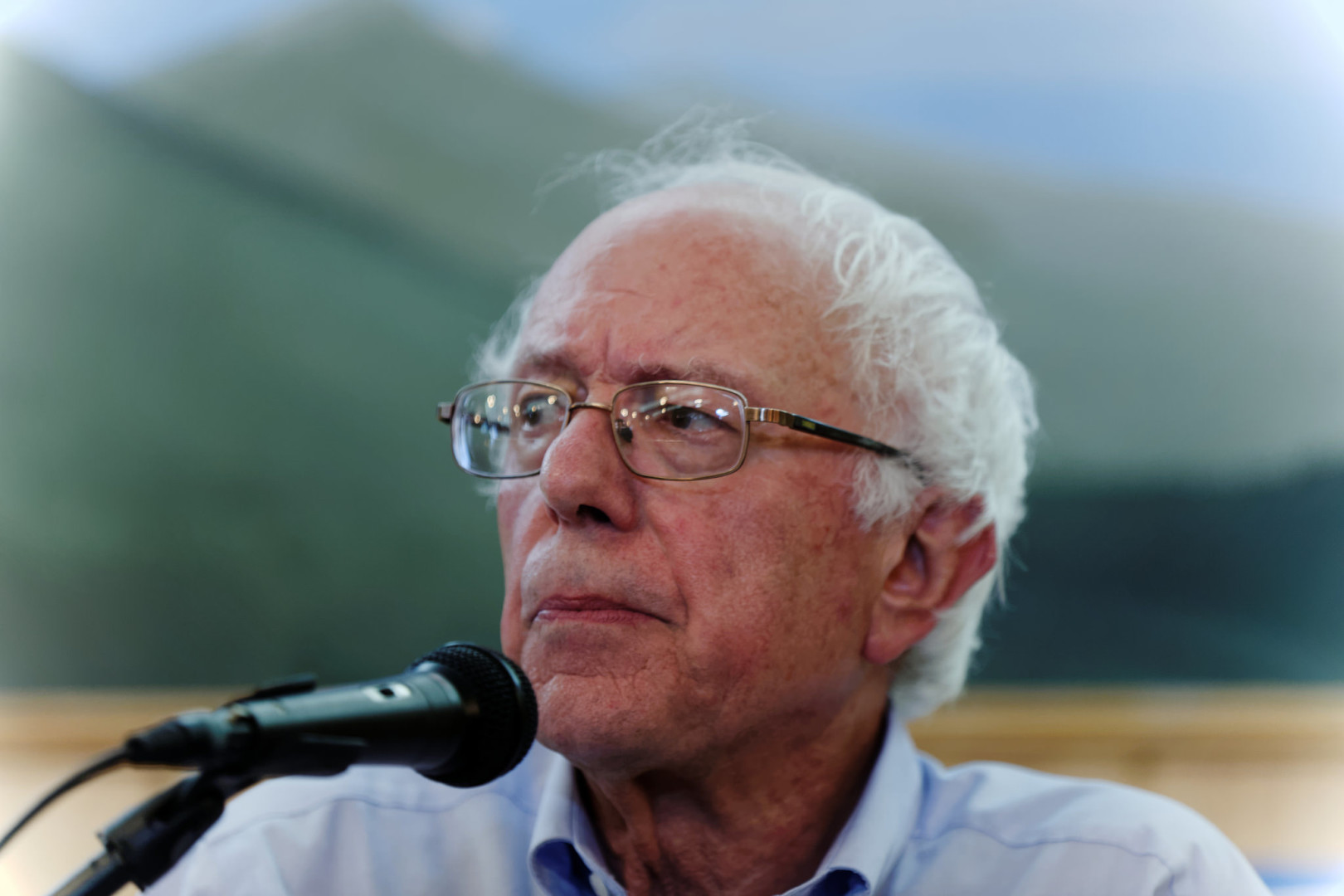Sen. Bernie Sanders (I-Vt.) may have shown an embarrassing lack of sophistication about the finance industry in a recent interview with New York Daily News, but Morning Consult’s polling shows he has tapped in to a general dislike of Wall Street across the political spectrum.
A solid majority of registered voters polled since November (52 percent) say Wall Street banks and corporations hurt the country as a whole, and 60 percent say that they have too much influence in the United States. Almost half (46 percent) believe there should be more regulation of Wall Street firms, and 39 percent say big banks and corporations have hurt them personally.
[visualizer id=”29085″]
If people have an opinion about Wall Street at all, it is likely to be negative. At least 20 percent of registered voters say they don’t know or have no opinion about Wall Street banks and corporations. By contrast, very few say Wall Street helps the country (18 percent) or themselves (13 percent) or that banks and corporations should be regulated less (13 percent) or have too little influence on the country (6 percent).
[table “109” not found /]
| Name | Approve | Don’t Know | Disapprove | Net Value |
| Joe Biden | 53 | 8 | 39 | 14 |
| Jair Bolsonaro | 37 | 7 | 56 | -18 |
| Mario Draghi | 66 | 6 | 28 | 39 |
| Boris Johnson | 44 | 6 | 49 | -5 |
| Emmanuel Macron | 35 | 9 | 56 | -22 |
| Angela Merkel | 54 | 6 | 40 | 14 |
| Narendra Modi | 67 | 6 | 28 | 39 |
| Moon Jae-in | 40 | 7 | 54 | -14 |
| Scott Morrison | 53 | 7 | 40 | 13 |
| Andrés Manuel López Obrador | 66 | 8 | 26 | 40 |
| Pedro Sánchez | 36 | 7 | 57 | -22 |
| Yoshihide Suga | 29 | 12 | 59 | -30 |
| Justin Trudeau | 45 | 8 | 46 | -1 |
Given the average voter’s views, it makes sense for Sanders to repeatedly state that Wall Street and big corporations are destroying the fabric of America and impugn these institutions’ morality. Republican front-runner Donald Trump has also picked up on the anti-Wall Street vibe and ripped on hedge funds and financial professionals that just move money around to get rich.
Not surprisingly, Sanders supporters are even more vehement in their hatred of Wall Street than other voters. About three-fourths of Sanders supporters say Wall Street banks and corporations have too much influence on the country (77 percent) and hurt the United States (71 percent).
Among Republicans, supporters of Texas Sen. Ted Cruz are the most friendly toward big banks and corporations, but that doesn’t necessarily mean they like them. The Cruz supporter camp is the only group in which less than half of registered voters believe Wall Street hurts the country (38 percent), but that’s still their most common response. About one-fourth of Cruz supporters either think Wall Street helps the country (26 percent) or have no opinion or don’t know (25 percent). Only 11 percent of Cruz supporters say Wall Street has no impact.
Supporters of Trump, Democratic front-runner Hillary Clinton and Ohio Gov. John Kasich all feel similar when it comes to their opinions of Wall Street. About half of voters in each camp believe big banks and corporations hurt the country (Clinton supporters: 53 percent, Kasich supporters: 51 percent, Trump supporters: 50 percent).
Cruz supporters are also the least likely to say that Wall Street has too much influence on the United States, although that view does represent a majority (52 percent). The percentages are even higher on that question for Trump supporters (59 percent), Clinton supporters (62 percent) and Kasich supporters (63 percent).
[visualizer id=”29100″]
The views of independent voters closely mirror the views of the public at large. A solid majority (52 percent) say Wall Street banks and corporations hurt the country as a whole, and 39 percent say they have hurt them personally. Six out of 10 independent voters believe Wall Street has too much influence on the country, and 43 percent say there should be more government regulations on banks and corporations.
Morning Consult’s policy questions were asked of voters from November 2015 through April 16, 2016. The poll was conducted among a national sample of 17,967 votes, with 5,543 responding to the Wall Street portion of the questionnaire.
The Morning Consult Policy Index is an ongoing poll of voters’ opinions about economic, technology, health, and environmental issues. The poll questions are designed to reflect national policy debates without referencing political parties or ideological identities. As data accumulates, Morning Consult can to identify small changes in public opinion and parse responses across narrow demographic attributes like employment status, prior voting activity, or religious affiliation.

